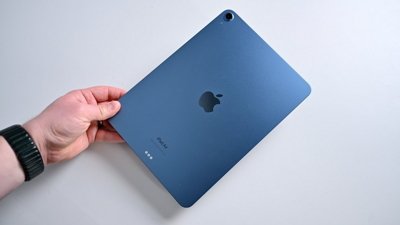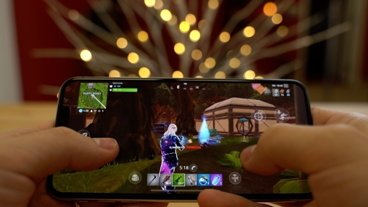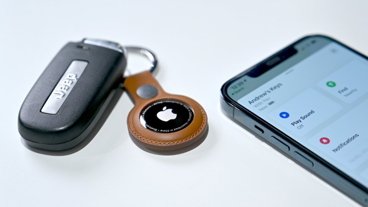China's state media attack on Apple appears to have backfired
A report by the state-run China Central Television that intended to smear Apple as bad for consumers has instead harmed the network's remaining credibility after a local celebrity apparently flubbed his lines when posting phony outrage as a disgruntled "Apple fan."
According to a report by the Wall Street Journal "China Real Time Report" blog, the Communist Party's CCTV initially aired a "Consumer Rights Day" broadcast on March 15th that celebrated consumer power, complete with song and dance routines.
The broadcast mixed in accusations that Apple was "biased against Chinese consumers in its warranty and customer service policies," along with implications that Volkswagen was selling defective cars in China.
Following the 3/15 CCTV broadcast, a message posted to the Sina Weibo (China's version of Twitter) account of Taiwanese-American actor (and reportedly a spokesman for Samsung's Galaxy products) Peter Ho stated, with the hash tag "#315 on the move" (a reference to the broadcast):
"Cannot believe Apple is playing so many dirty tricks in customer service. As an Apple fan, I feel hurt. Won’t you [Apple] feel ashamed in front of Steve Jobs? Won’t you feel ashamed in front of those young people who sell their kidneys for your products? You dare to bully consumers simply because you are a famous brand. Need to send out at about 8:20 pm."
Users on Weibo immediately noted a series of negative messages posted at 8:20pm by several Weibo celebrities. Somewhat ironically, apparently all of the prominent 8:20 posts (including Ho's) were posted using Apple products, either an iPhone or iPad (below).
The orchestrated posts kicked off speculation that Ho and other prominent Weibo users had been supplied with talking points (and likely paid) as part of a state sponsored effort to spread CCTV's propaganda via social networking.
Ho subsequently denied posting the message, then added that he suspected that his account had been hacked, then eventually deleted all three posts from the Twitter-like service. A backlash of critical posts then followed, popularizing the hashtag #PostAround820 until the microblogging service began censoring the tag.
"I’ve heard that CCTV asked several Weibo celebrities to post negative things about Apple around 8:20," one user posted, "As a result, Mr. Liu, Zheng Yuanjie, and their compatriots were outed by Peter Ho’s post at 8:20, so now Peter Ho is pretending his phone was stolen and someone posted on his Weibo, and deleting comments on his Weibo as fast as lightning. Tens of thousands of comments have been trimmed down to a couple thousand."
"Would the all-powerful CCTV please tell us which brands haven’t discriminated against the people of this Heavenly Kingdom? Post around 8:20," another user sarcastically posted in response.
Another wrote, "The 3.15 consumer right show is much more disgusting than the companies it exposed. At least Apple still offers post-sale customer service. How about those victims of Sanlu’s toxic baby powder? Has anyone taken care of them?"
One "vocal critic on Weibo" commented: "Which exposed company is the most surprising to you on this year’s 3.15? My answer is: the state-run television of our country, which turned a blind eye to the thousands of dead pigs floating on the water source of the country’s biggest city, but put all emphasis on a cell phone company who doesn’t replace back cover for its customers. I don’t know where the heart of this country go.""The only party poised to gain from the scandal, it seems, is Apple, for whom CCTV’s consumer rights expose may prove a blessing in disguise"
A report by journalist Liz Carter, who reports on Chinese social networking, stated "the 8:20 incident has already been picked up by every major Chinese news organization, and is sure to be a public relations nightmare for the celebrities, CCTV, and Sina Weibo. The only party poised to gain from the scandal, it seems, is Apple, for whom CCTV’s consumer rights expose may prove a blessing in disguise."
The Wall Street Journal stated that "the reaction on Weibo points to rising mistrust of the country’s state-run media outlets among Chinese Internet users, who have increasing access to alternate sources of information via social media."
"News gathering in China, where censorship is a norm and freedom of the press is limited at best, is frequently mired in corruption," the report noted, adding that "Stories are often driven by financial incentives or government directives. CCTV has been particularly aggressive in its annual Consumer Rights Day reports, including last year when it slammed McDonald’s Corp. with damaging allegations the fast food giant sold food that servers had dropped on the floor."
CCTV has previously been criticized for offering thinly veiled propaganda as news; two years ago the network's news program profiled the Chinese-built Chengdu J-10, depicting it targeting and destroying another plane with a missile.
The targeted plane in the video clip was later identified as being a US fighter jet, and the entire video sequence ended up actually being footage taken from the 1986 movie "Top Gun."
China has shown a tremendous appetite for Apple's products, resulting in such a massive expansion of the company's Mac and iOS sales in the region that the company recently changed how it reports revenue to highlight the growth in the Greater China region.
 Daniel Eran Dilger
Daniel Eran Dilger
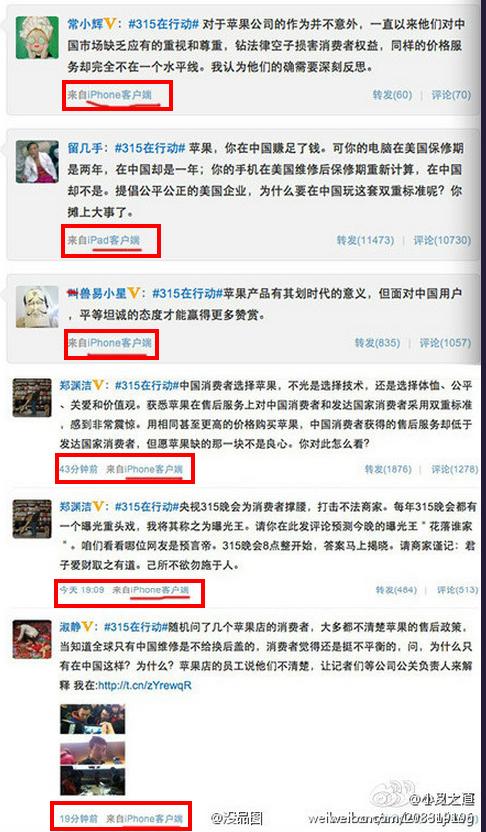











 William Gallagher
William Gallagher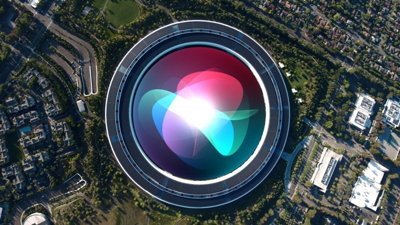
 Malcolm Owen
Malcolm Owen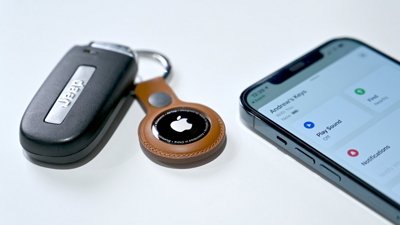
 Amber Neely
Amber Neely
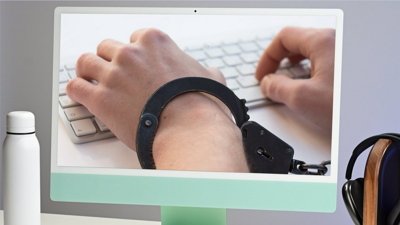
 Marko Zivkovic
Marko Zivkovic
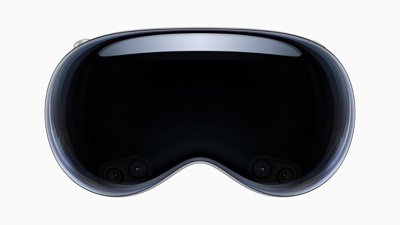
 Andrew Orr
Andrew Orr